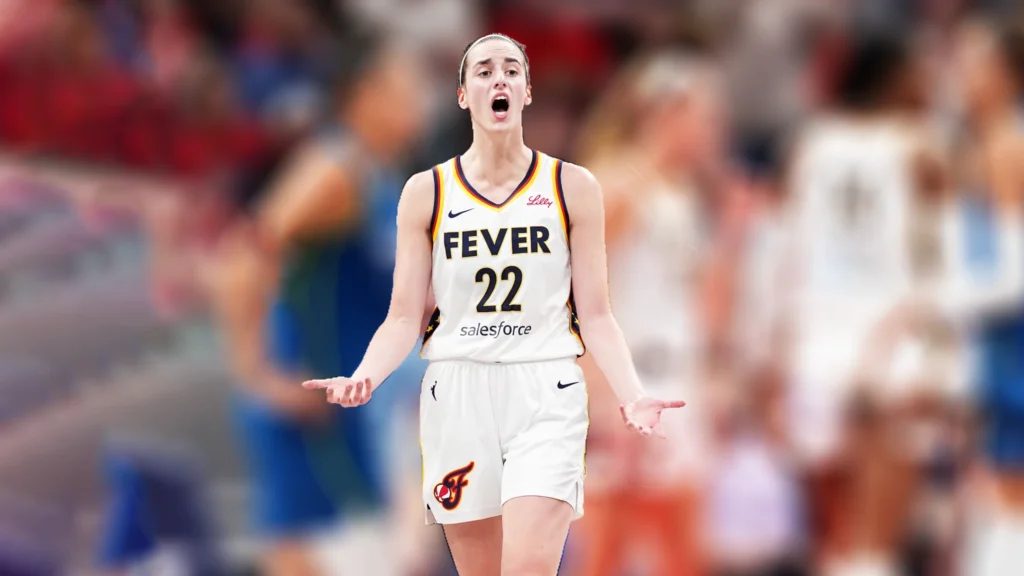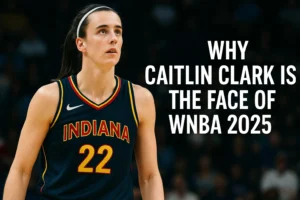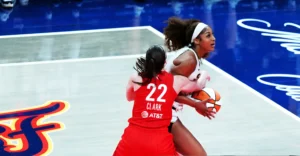
Indianapolis–In a closely contested WNBA matchup that concluded with a 90–88 victory for the New York Liberty over the Indiana Fever, controversy surrounding officiating has taken center stage. Caitlin Clark, the Fever’s standout guard and one of the league’s brightest young stars, along with her team and coach Stephanie White, have publicly voiced their disappointment and frustration with the referees’ calls throughout the game. The heated post-game reactions have ignited a wider conversation about officiating consistency and fairness within the WNBA, raising important questions about how the league manages game integrity and player safety.
The Fever found themselves on the losing end of a hard-fought battle that saw the Liberty erase a 12-point deficit in the fourth quarter, largely fueled by Jonquel Jones, who scored 14 of her 26 points in the final period. While the Liberty’s rally was impressive, the focus quickly shifted away from the team effort to several officiating decisions that arguably influenced the outcome of the game.
Head coach Stephanie White was especially outspoken after the match, describing the officiating as “disrespectful” and “egregious.” She singled out a crucial no-call on the final possession, when Natasha Cloud of the Liberty stripped the ball from Clark, preventing her from attempting a potential game-winning shot. This moment was pivotal, as the Fever were trailing by two points with seconds remaining, and the no-call denied Clark a chance to take the final shot. White’s public criticism echoed a sentiment shared by Clark and several teammates who felt the officials’ decisions disproportionately affected the Fever’s chances.
Another contentious point highlighted in the aftermath was the disparity in free throw attempts. The Liberty shot 32 free throws compared to just 15 by the Fever, which many see as a reflection of uneven officiating. Such a wide margin raises questions about foul calls and how the referees managed physicality during the game. Fans and analysts noted that Clark, known for her aggressive style and physical play, often faces significant contact without corresponding foul calls, which can alter the rhythm and fairness of her gameplay.
Clark herself appeared visibly frustrated after the game, demonstrating the emotional toll such officiating can have on players, especially rising stars like her. This is not the first instance where Clark has expressed concerns about inconsistent calls. The ongoing narrative around her treatment on the court points to a broader issue of ensuring that all players receive equitable refereeing regardless of their profile or team standing.
The WNBA has yet to issue an official statement addressing the controversy surrounding this game’s officiating. However, the public remarks from the Fever’s camp and the growing debate among fans highlight a pressing need for the league to evaluate its officiating standards and training programs. Fair and consistent refereeing is crucial not only for maintaining competitive balance but also for protecting players’ safety in a physically demanding sport.
The significance of this controversy extends beyond just one game or one player. It reflects the challenges the WNBA faces as it continues to grow in visibility and competitiveness. As more attention is placed on star players like Caitlin Clark, who are becoming faces of the league, the expectations for officiating quality also rise. Ensuring that games are adjudicated fairly is essential to preserving the league’s credibility and encouraging fan engagement.
The discussion around this incident also brings attention to the broader topic of officiating in women’s professional basketball compared to other leagues, including the NBA. Many observers argue for enhanced referee training and technological support such as instant replay reviews to minimize human error and controversy. As the WNBA strives for parity in professional sports, addressing these officiating concerns will be a key factor in its continued success.
In conclusion, the loss to the Liberty was not just a narrow defeat for the Indiana Fever but a catalyst for a much-needed conversation about the standards and consistency of WNBA officiating. Caitlin Clark and her team’s candid criticism underscores the urgency of addressing these issues to maintain fair play, protect players, and support the league’s growth. As the WNBA season progresses, all eyes will be on how the league responds to this moment and whether it will take steps to improve the quality and fairness of game officiating moving forward.

